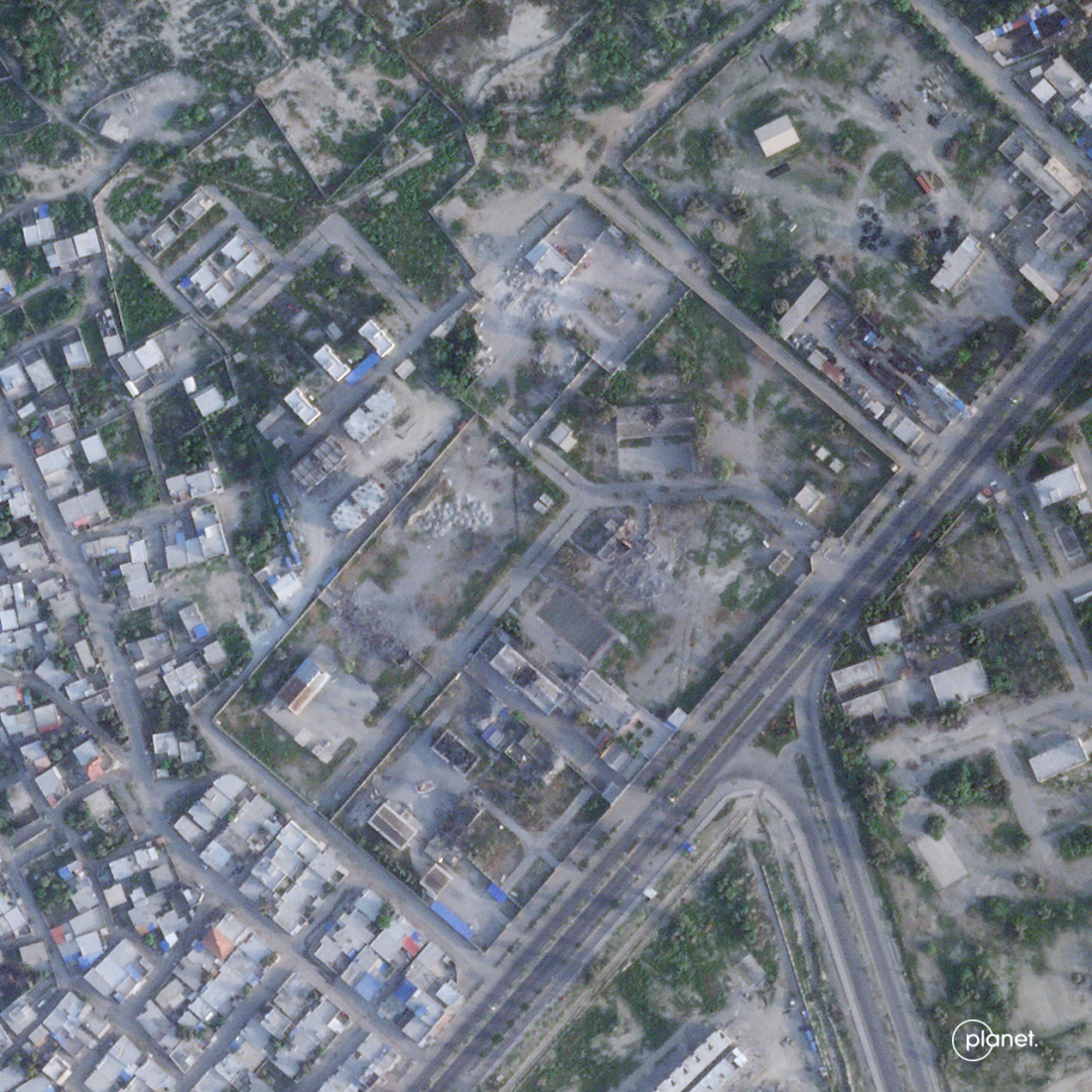News
Judge Orders Release of Rumeysa Ozturk, Tufts Student Detained by ICE

A federal judge ordered the Trump administration on Friday to release Rumeysa Ozturk, a Tufts University student, saying that her continued detention could potentially chill “the speech of the millions and millions of individuals in this country who are not citizens.”
At a hearing at the Federal District Court in Vermont, the judge, William K. Sessions III, said Ms. Ozturk should be freed immediately: “Her continued detention cannot stand.”
Ms. Ozturk, a doctoral student from Turkey, has been in detention since March 25, when Immigration and Customs Enforcement agents in masks and plainclothes surrounded her outside her home in Somerville, Mass., while she was on the phone with her mother. She was put on a plane to a detention center in Louisiana, and her friends, family and lawyers didn’t know where she was for 24 hours, they said.
Her arrest led to public outrage at her treatment and criticism that the government is abusing the immigration system to deport international students. In seeking her release, her lawyers have accused the government of detaining her in retaliation for speech that is protected by the First Amendment. The main evidence against her appears to be an essay critical of Israel that she helped to write in a Tufts student newspaper last year.
They also said the conditions at the detention center were exacerbating her chronic asthma and preventing her from carrying out her academic work.
Her lawyer, Mahsa Khanbabai, said she was “relieved and ecstatic” that Ms. Ozturk had been released.
“When did speaking up against oppression become a crime?” Ms. Khanbabai asked. “When did speaking up against genocide become something to be imprisoned for?”
Ms. Ozturk appeared at the hearing by a remote feed from the ICE detention center in Basile, La., to the courtroom in Burlington, Vt. Ms. Ozturk, who is Muslim, wore a head scarf and an orange coverall.
A little over an hour into the hearing, she appeared to suffer an asthma attack, coughing and choking, and the judge allowed her to leave the feed for a while.
Ms. Ozturk testified that she had experienced escalating asthma attacks since her arrest. The first attack came when the plane that was taking her from Vermont to Louisiana stopped in Atlanta, she said.
A pulmonologist, Dr. Jessica McCannon, testified that Ms. Ozturk’s asthma was poorly controlled in detention and would continue to get worse if she were not released. She said that she had not been able to physically examine Ms. Ozturk but had spoken to her and reviewed her medical records.
The hearing had been expedited by Judge Sessions. Earlier this week, a federal appeals court ordered that she be transferred to Vermont by next week to attend a bail hearing. But Judge Sessions decided to hold the hearing with Ms. Ozturk still in Louisiana.
The hearing was held in Vermont because Ms. Ozturk had spent the night there in the custody of federal agents on the way to Louisiana, on a circuitous route that her lawyers said had prevented them from finding her.
Government lawyers in the appeals court hearing declined to discuss questions about speech raised by another judge. But Judge Sessions did not mince words on Friday, suggesting the government was trying to deport Ms. Ozturk based on the slenderest of evidence that she had posed a threat to American foreign policy interests.
“There has been no evidence that has been introduced by the government other than the Op-Ed,” he said in granting her release.
He added that noncitizens “may now avoid exercising their First Amendment rights for fear of being whisked away to a detention center from their home.”
Department of Homeland Security officials have said that Ms. Ozturk had “engaged in activities in support of Hamas, a foreign terrorist organization that relishes the killing of Americans.” And following her arrest, Secretary of State Marco Rubio commented on Ms. Ozturk’s detention at a news conference, saying that she had not been given a visa to “become a social activist that tears up our university campuses.”
But during the hearing Friday, the government’s lawyer, Michael Drescher, called no witnesses and hardly spoke. When he did speak, it was mainly to raise technical issues about the conditions of her bail.
Mr. Drescher asked the judge to bear in mind that even though Ms. Ozturk was being released from immigration custody, the deportation proceeding against her would continue.
Judge Sessions said Ms. Ozturk was free to return home to Somerville. He said he did not see any risk that she would flee. “She’s also free to travel to Massachusetts and Vermont as she sees fit” for further court appearances, he added.
The judge said he wanted to give Ms. Ozturk maximum mobility so she could pursue the educational opportunities that she needed to complete her doctorate.
Ms. Ozturk testified that she had been confined with 23 other women in a space intended for 14 people. Stress and the smells of cleaning supplies had exacerbated her asthma, she said. But when she sought treatment, the medical staff at the detention center had been condescending and had raised their voices at her, she said, and a nurse had ripped off her head scarf.
She testified that it was “impossible” to work on her dissertation in detention because she did not have access to her computer, professors, library or peers. Ms. Ozturk, who specializes in children’s media, is due to finish her doctoral dissertation in December and to graduate in February, according to the testimony.
Her adviser, Sara Johnson, testified that Ms. Ozturk had been doing innovative research on how adolescents used social media to benefit other people.
In describing her ties to the Tufts community, Ms. Ozturk said she had helped organize an event with colleagues where community members came together to express grief for children in conflict areas around the world, “from Gaza to Israel, from Russia to Ukraine, from Congo to Haiti, from Sudan to Yemen, from Cameroon to Afghanistan, from all parts of the world.”
The judge’s decision was another defeat for the government’s efforts to deport international students associated with pro-Palestinian advocacy. A week ago, a different federal judge in Vermont, Geoffrey W. Crawford, ordered the release of Mohsen Mahdawi, a Columbia student, from detention on bail.
Mr. Mahdawi is a permanent resident of the United States and is about to graduate from Columbia in May. His lawyers say that the government detained him in retaliation for his pro-Palestinian activism. He was arrested on April 14, after a naturalization interview at an immigration field office.

News
Satellite images show Iran school strike hit more buildings than earlier reported

The bombing of an Iranian elementary school that killed some 165 people, many of them schoolgirls, included more targets near the school than has been initially reported, a review of commercial satellite imagery by NPR has found.
The images suggest that the school was hit on Saturday as part of a precision airstrike on a neighboring Iranian military complex — and that it may have been struck as a result of outdated targeting information.
The new images come from the company Planet and are of the city of Minab, located in southeastern Iran. They show that a health clinic and other buildings near the school were also struck. Three independent experts confirmed NPR’s analysis of the additional strike points.
The strike points “look like pretty clean detonation centroids,” said Corey Scher, a postdoctoral researcher at the Conflict Ecology laboratory at Oregon State University.
“These certainly appear like detonation sites,” agreed Scher’s colleague, Oregon State associate professor Jamon Van Den Hoek.
Jeffrey Lewis, a professor at Middlebury College who specializes in satellite imagery, said the imagery was consistent with a precision airstrike.
The images show “very precise targeting,” Lewis told NPR. “Almost all the buildings [in the compound] are hit.”

A satellite image of an Iranian Revolutionary Guard compound taken on March 4, several days after an airstrike destroyed a school on the edge of the compound. The image reveals that half a dozen other buildings in addition to the school were struck.
Planet Labs PBC
hide caption
toggle caption
Planet Labs PBC
Iranian state media said 165 people died in the bombing, which struck a girls’ school. The school was located within less than 100 yards of the perimeter of an Iranian Revolutionary Guard naval base, according to satellite images and publicly available information. The clinic was also located within the base perimeter, although both facilities had been walled off from the base.
Israel has denied involvement. “We are not aware at the moment of any IDF operation in that area,” Israel Defense Forces spokesperson Nadav Shoshani told NPR on Monday. “I don’t know who’s responsible for the bombing.”

At a press conference Wednesday morning, U.S. Defense Secretary Pete Hegseth said that the U.S. is looking into what happened at the school. “All I know, all I can say, is that we’re investigating that,” Hegseth said. “We, of course, never target civilian targets.”
Given Minab’s location in the southeastern part of Iran, Lewis believes it’s more likely the U.S. would have conducted the strike than Israel. As one gets farther south and east in Iran, “a strike is much more likely to be a U.S. strike than an Israeli strike because of the type of munitions and the geographic location,” he said.
Esmail Baghaei, the spokesman for Iran’s Foreign Ministry, called the strike “deliberate” and said that the U.S. and Israel bombed the school in part to tie up Iranian forces in the region with rescue efforts. “To call the attack on the girls school merely a ‘war crime’ does not capture the sheer evil and depravity of such a crime,” he said.
But Lewis said it’s more likely that the strike was the result of an error. Satellite images show that the school and clinic buildings were both once part of the base. The school was separated from the base by a wall between 2013 and 2016. The clinic was walled off between 2022 and 2024.
Lewis believes it’s possible American military planners had not updated their target sets.
“There are thousands of targets across Iran, and so there will be teams in the United States and Israel that are responsible for tracking those targets and updating them,” he said. “It’s possible that the target didn’t get updated.”
The Pentagon did not immediately respond to NPR’s request for additional information about the strike.
NPR’s Arezou Rezvani and NPR’s RAD team contributed to this report.
News
Mojtaba Khamenei, son of former supreme leader, tipped to become Iran’s next head of state

Mojtaba Khamenei, the second son of the assassinated Ali Khamenei, is being heavily tipped to succeed his father as supreme leader of Iran, which would pitch a hardliner into the task of steering the Islamic republic through the most turbulent period in its 48-year history and offer a powerful signal that, for now, it has no intention of changing course.
No official confirmation has been given and the announcement may be delayed until after the funeral of Ali Khamenei, which was on Wednesday postponed.
His son is believed to have been the choice of the Islamic Revolutionary Guard Corps (IRGC), and the Israeli defence minister, Gideon Saar, has warned he will be assassinated.
Ayatollah Seyed Khatani, a member of the Assembly of Experts, the body that chooses the new supreme leader, said the assembly was close to selecting a leader.
Rigid in his anti-western views, Mojtaba Khamenei is not the candidate Donald Trump would have wanted. Marco Rubio, the US secretary of state, said on Tuesday that Iran was run by “religious fanatic lunatics” – and Khamenei’s appointment is hardly likely to dispel that opinion.
The choice of supreme leader is made by the 88-strong Assembly of Experts, who in this case are picking from a field of six possible candidates. His election would be a powerful if unsurprising symbol that the government is not looking to find an accommodation with America.
Trump has said the worst-case scenario would be if Khamenei’s successor was “as bad as the previous person”.
There has been speculation for more than a decade that he would be his father’s successor, which grew when Ebrahim Raisi, the elected president and favourite of Khamenei, was killed in a helicopter crash.
Mojtaba Khamenei was born in 1969 and studied theology after graduating from high school. At the age of 17, he went to serve in the Iran-Iraq war, but it was not until the late 1990s that he came to be recognised as a public figure in his own right.
After the landslide defeat of Khamenei’s preferred candidate, Ali Akbar Nategh Nuri, in the 1997 presidential election, where he won only 25% of the final vote, various conservative Iranian groups realised the need to make changes to their structures and Mojtaba Khamenei was central to that project.
He was also seen as instrumental by reformists in suppressing the protests in 2009 that came after allegations the presidential election had been rigged, with his name chanted in the streets as one of those responsible. Mostafa Tajzadeh, a senior member of Iran’s reformist parties who was imprisoned after the vote, alleged that his and his wife, Fakhr al-Sadat Mohtashamipour’s, legal case was under the direct supervision of Mojtaba Khamenei.
In 2022 he was given the title of ayatollah – essential to his promotion. By then he was a regular figure by his father’s side at political meetings, as well as playing an influential role in the Islamic Republic’s Broadcasting Corporation, the government’s official media outlet often criticised for churning out dull political propaganda that many Iranians reject in favour of overseas satellite channels. He has also played a central role in the administration of his father’s substantial financial empire.
His closest political allies are Ahmad Vahidi, the newly appointed IRGC commander; Hossein Taeb, a former head of the IRGC’s intelligence organisation; and Mohammad Bagher Ghalibaf, the current speaker of the parliament.
His rumoured appointment and its hereditary nature has long been resisted by reformists. The former prime minister Mir Hossein Mousavi, referring to the long history of rumours about Mojtaba Khamenei succeeding his father as leader, wrote in 2022: “News of this conspiracy have been heard for 13 years. If they are not truly pursuing it, why don’t they deny such an intention once and for all?”
The Assembly of Experts, in response, denounced “meaninglessness of doubts” and said the assembly would select only “the most qualified and the most suitable”.
Israel on Tuesday struck the building in the Iranian city of Qom, one of Shia Islam’s main seats of power, where the assembly was scheduled, but the building was empty, according to IRGC-affiliated media.
News
Video: Senators Question Kristi Noem on ICE Immigration Tactics

new video loaded: Senators Question Kristi Noem on ICE Immigration Tactics
transcript
transcript
Senators Question Kristi Noem on ICE Immigration Tactics
Homeland Security Secretary Kristi Noem repeatedly refused to apologize for suggesting that Alex Pretti and Renee Good, two U.S. citizens shot and killed by agents, were domestic terrorists.
-
What we’ve seen is a disaster under your leadership, Ms. Noem. A disaster. What we’ve seen is innocent people getting detained that turn out are American citizens. I could talk about the culture that’s been created here. After the killings of Renee Good and Alex Pretti, when I spoke to Alex’s parents, they told me that you calling him a domestic terrorist — this was directly from them — the day after he was killed, a nurse in our V.A., Alex — one of the most hurtful things they could ever imagine was said by you about their son. Do you have anything you want to say to Alex Pretti’s parents? Ma’am, I did not call him a domestic terrorist. I said It appeared to be an incident of — I think the parents saw it for what it was. In a hearing — recent hearing before the HSGAC committee, C.B.P. and ICE officials testified under oath that their agencies did not inform you that Pretti was a domestic terrorist — during that hearing, stated during that hearing, I was getting reports from the ground, from agents at the scene, and I would say that it was a chaotic scene. How did you think that calling them domestic terrorists at that scene was somehow going to calm the situation? The fact that you can’t admit to a mistake, which looks like under investigation, it’s going to prove that Ms. Good and Mr. Pretti probably should not have been shot in the face and in the back. Law enforcement needs to learn from that. You don’t protect them by not looking after the facts.

By Christina Kelso and Jackeline Luna
March 3, 2026
-

 World1 week ago
World1 week agoExclusive: DeepSeek withholds latest AI model from US chipmakers including Nvidia, sources say
-

 Massachusetts1 week ago
Massachusetts1 week agoMother and daughter injured in Taunton house explosion
-

 Wisconsin3 days ago
Wisconsin3 days agoSetting sail on iceboats across a frozen lake in Wisconsin
-

 Maryland4 days ago
Maryland4 days agoAM showers Sunday in Maryland
-

 Denver, CO1 week ago
Denver, CO1 week ago10 acres charred, 5 injured in Thornton grass fire, evacuation orders lifted
-

 Florida4 days ago
Florida4 days agoFlorida man rescued after being stuck in shoulder-deep mud for days
-

 Oregon6 days ago
Oregon6 days ago2026 OSAA Oregon Wrestling State Championship Results And Brackets – FloWrestling
-

 Massachusetts2 days ago
Massachusetts2 days agoMassachusetts man awaits word from family in Iran after attacks























